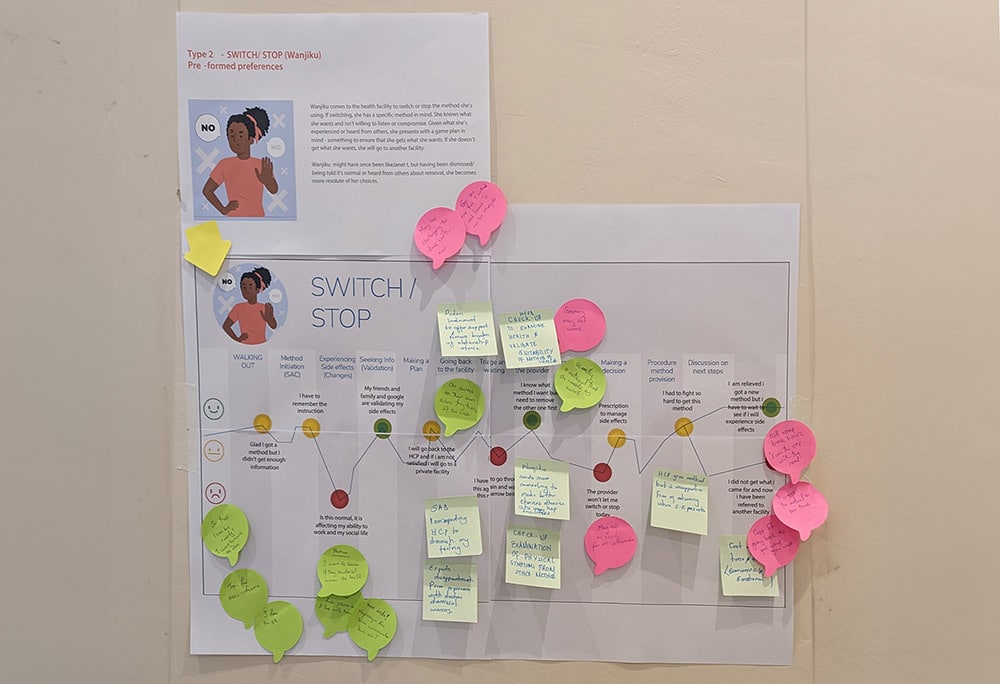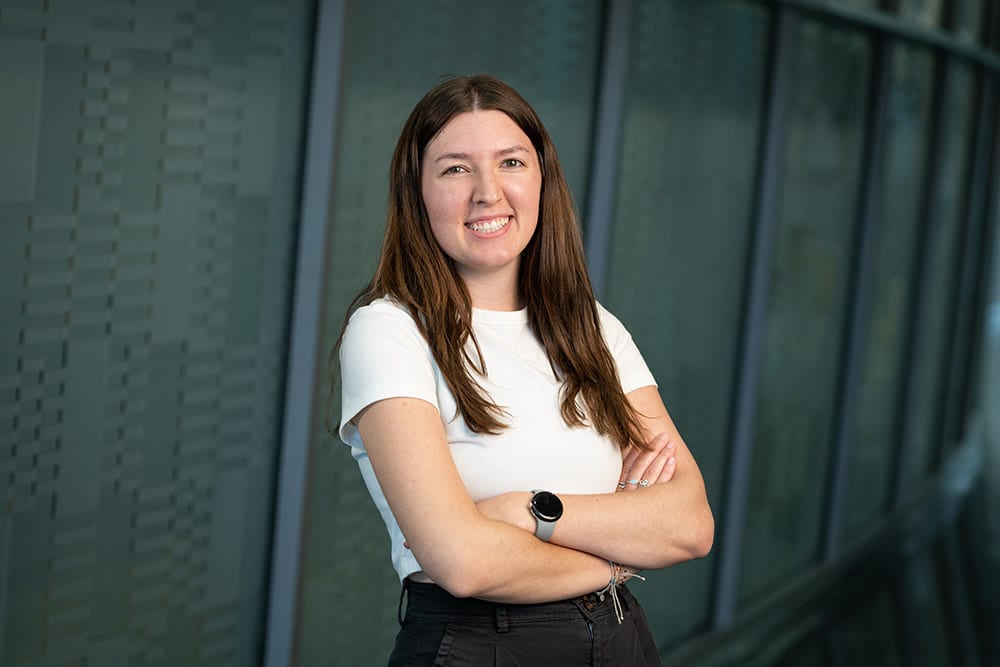ISD Design Science Doctoral Candidate Lauren Wojciechowski Pushes Revolutionizing Co-Design in Health
Lauren Wojciechowski wants to improve your life.
Wojciechowski, an ISD Design Science doctoral candidate, is on a mission to reimagine and reshape what engineering can be to help people.
Wojciechowski believes strongly in the College of Engineering’s new People-First Engineering philosophy, “Reimagining and reshaping what engineering can be, enabling all engineers to have a positive impact on the world and build a future that will elevate all people.”
She exemplifies this philosophy in her research to push the boundaries of traditional engineering as she seeks to improve the process and create a comprehensive toolkit for co-design in health applications.
Sparking a Passion
Wojciechowski began her Michigan journey with an undergraduate degree in Mechanical Engineering and most recently completed a Master’s in Design Science. Growing up, her interest in engineering and design was sparked by her experiences helping her father with handyman tasks and a passion for science and math in high school.
Initially, when enrolling in her undergraduate program, Wojciechowski intended to enter the field of biomedical engineering, with a focus on medical device design, particularly prosthetics. During her freshman year, she began her research journey, working on a project involving the evaluation of atherectomy systems — essentially a grinding wheel designed to remove plaque from arteries. This experience ignited her passion for research, which would continue throughout her education.
Wojciechowski’s interest in Design Science and its potential to bridge the gap between engineering and public health was inspired by Mechanical Engineering Professor, Shanna Daly. While enrolled in her “Sustainable Engineering” and “Front-End Design” courses, Wojciechowski realized she wanted to combine a passion for service, social justice, and health-related work with her more traditional engineering background. She approached Professor Daly for guidance, who introduced her to the concept of Design Science and the Design Science Master’s program. Wojciechowski’s interest in social-centered design and her desire to make a meaningful impact on health equity led her to work with Mechanical Engineering Professor Julia Kramer, who shared her vision of combining engineering and public health to address critical global health challenges.
Applying Expertise
Throughout her master’s degree, Wojciechowski continued working with Professor Kramer and was eventually accepted to participate in a research project that would cap off her master’s program and jump start her doctoral education. Her project focused on improving family planning counseling and follow-up approaches in Kenya and Ethiopia and was a collaborative effort involving researchers from the Kenya Medical Research Institute, St. Paul’s Hospital Millennium Medical College, University of California, San Francisco (UCSF), and U-M.
Wojciechowski’s role in this project involved providing feedback on the content of co-design workshops that engaged local women of reproductive age, their partners, and healthcare workers, and developing a set of evaluation tools designed to measure the success of the co-design process. In August 2023, she traveled to Addis Ababa, Ethiopia, and Nairobi, Kenya, where she supported the facilitation of the first co-design workshops while assessing the experiences of participants. In these first workshops, participants were briefed on their roles and taught the groundwork for how to successfully work as a co-designer. The subsequent workshops will facilitate further actions like discovery, brainstorming, and idea refinement, with the planned goal being an implementable solution to improve the family planning experience in these areas. By working directly with members of the communities in this way, the project seeks to find solutions that are better tailored to the specific needs and challenges of the local communities.

“What exactly that solution will look like, we don’t know,” she said. “That’s the whole point. We’re engaging these people in the design process. We, as the researchers, aren’t coming in with an idea. The whole point is the women in these communities, their partners, the healthcare providers, all of our research partners and implementing partners, are all coming together and doing the design collaboratively.”
Looking Ahead
Wojciechowski feels confident insights from this project would play a significant role in setting the stage for her future research into the study and improvement of co-design in global health.
“Survey responses will tell us what did the participants learn?” she asked. “What did or didn’t work well in the workshops? What did they find really challenging? What did they find really enjoyable and interesting? By analyzing your survey responses and interviews, we’ll be able to tell from the participants’ perspectives what they thought was a success and what was a failure of their engagement as co-designers so that from those findings in the future, when we do co-design or when other researchers do co-design, they can improve their process and therefore more successful solutions.”
Wojciechowski’s PhD research’s current focus involves using her experience and insight to create a framework or set of guidelines, that designers working in global health applications can use to successfully co-design and improve their processes. She will seek to continue to bridge the gap between public health and engineering, making participatory design and equitable health solutions more accessible.
Wojciechowski is still narrowing down her focus around the improvement of co-design as a practice and how to best apply what she will learn to have a broad impact on the field of global health design. What is clear is where her passions and ultimate goals lay.
She envisions herself contributing to eradicating health disparities and making health resources accessible to underserved communities worldwide.
Whether as a university professor, consultant, or researcher, Wojciechowski’s mission remains clear: Create positive change in health through design science and co-design.
